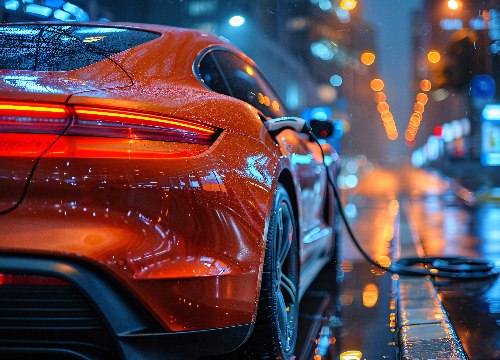Why Is Northvolt Critical to Europe's EV Battery Industry?

Insights - Northvolt announced last week that it has filed for Chapter 11 restructuring in the U.S., allowing foreign companies to reorganize while continuing normal operations.
Seen as a key player for Western EV manufacturers reducing reliance on Chinese battery giants, Northvolt produces lithium-ion, sodium-ion, EV, and energy storage batteries. Last year, it reported a breakthrough in sodium-ion technology, promising cost-effective, sustainable energy storage solutions globally.
Financial Struggles and Operational Issues
Northvolt, once a promising player in the EV battery market, announced significant setbacks. In September, it laid off 1,600 employees and missed its production target of 100,000 batteries per week, shipping only 20,000 units. The company also lost a €2 billion contract with BMW in June. Despite raising over $15 billion from investors like Volkswagen, Goldman Sachs, and BlackRock, Northvolt failed to ramp up production at its Skellefteå plant in Sweden.
The company plans to secure $145 million in cash collateral and $100 million in debtor-in-possession financing, supplemented by a $100 million commitment from Scania, its largest customer.
Northvolt’s leadership, including interim chairman Tom Johnstone, expressed hope of playing a key role in the EV transition and is actively seeking new investors to set the company on a sustainable growth path.
Current and former Northvolt employees have attributed the company's failure to scale production to a range of issues, including poor management, excessive spending, low safety standards, and overreliance on Chinese machinery.
Tariffs Complicate Europe-China Battery Ties
Northvolt's collapse shifts the fight for Europe's battery market dominance to Asian manufacturers. UBS analyst Tim Bush commented that EU tariffs on Chinese EVs and ongoing trade disputes between Brussels and Beijing complicate potential Chinese investments in Europe.
The Financial Times previously reported that the European Commission is considering requiring Chinese developers to establish factories in Europe and transfer intellectual property in exchange for EU subsidies. However, industry executives noted that Europe’s startups still lag in battery production scale and expertise.
Renault CEO Luca de Meo stated that Europe needs agreements with Chinese companies, as their dominance in mining, refining, and production is essential for competitiveness. The key question remains how long Europe will need to achieve such technology transfers.
EV Batteries Remain Strategically Vital for Europe
Volta Energy Technologies’ James Frith emphasized that Europe must rethink its approach to supporting its battery industry to avoid losing the value chain to China. Former Northvolt CEO Peter Carlsson warned that Europe might regret abandoning its competitive ambitions in the battery sector, saying that the current period is a low point, with automakers, policymakers, and investors growing more hesitant about the EV transition’s pace.
While the European Investment Bank reaffirmed its commitment to the battery sector, its vice president Thomas Östros said it is too early to predict the outcome of these developments. The timeline for Europe to catch up remains uncertain, raising concerns about whether it can avoid losing another critical industry, similar to its experience with solar panels.
* The content presented above, whether from a third party or not, is considered as general advice only. This article should not be construed as containing investment advice, investment recommendations, an offer of or solicitation for any transactions in financial instruments.




